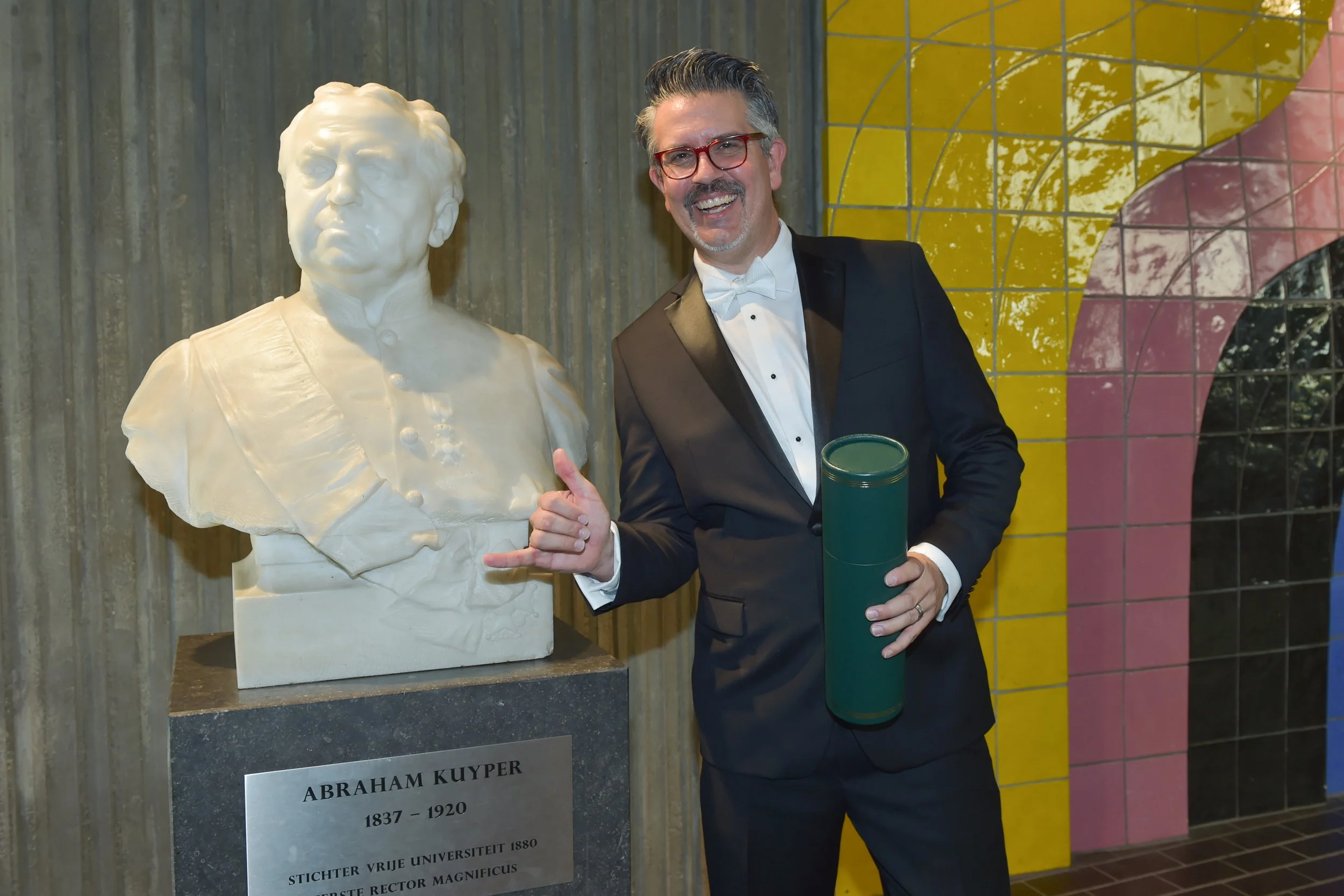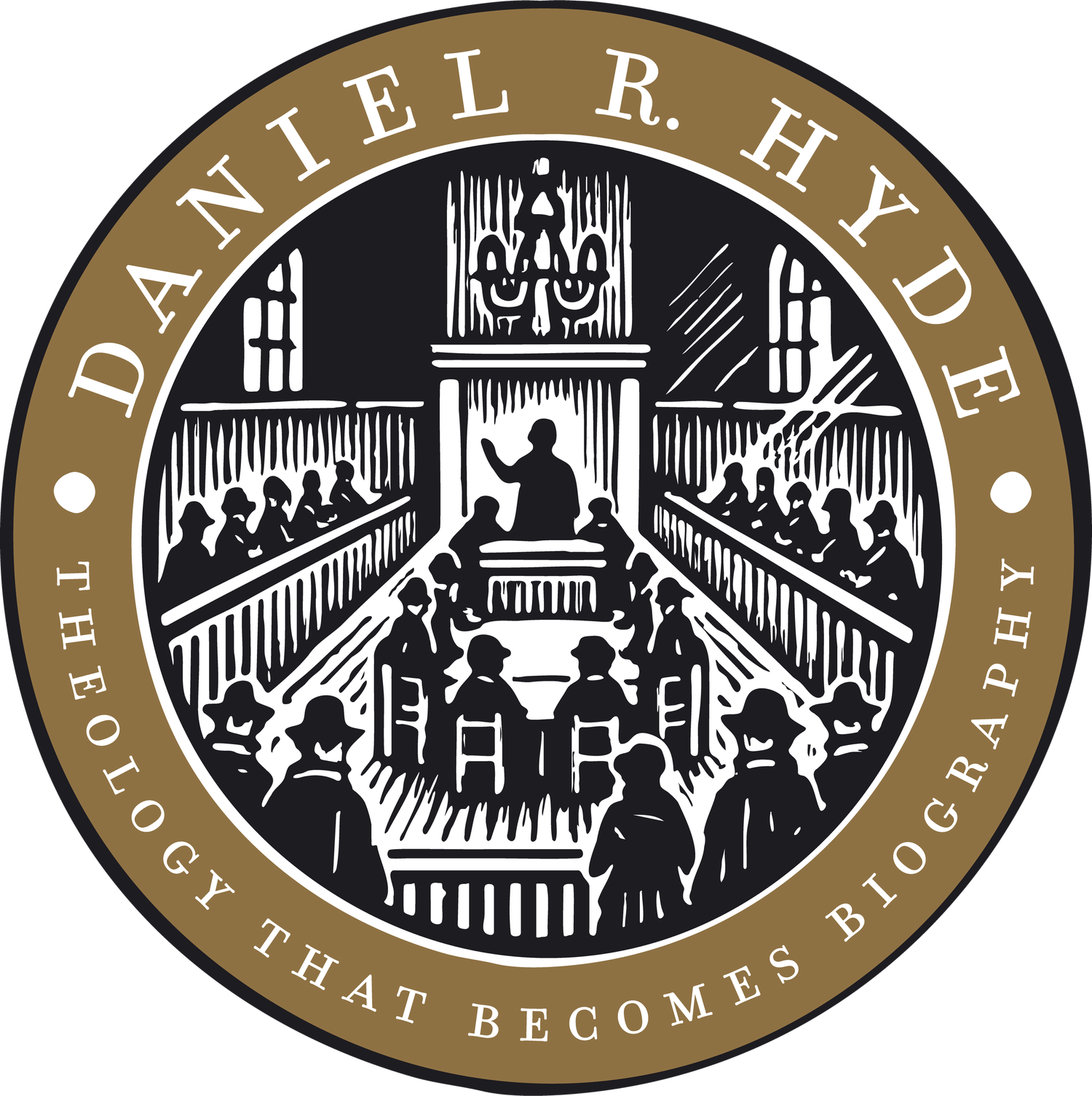About

The Rev. Dr. Daniel R. Hyde (“Pastor Danny”) is a SoCal native whose eclectic past has prepared him to minister in the diverse culture that is Southern California.
He was born at Long Beach Memorial Hospital and soon baptized in the Roman Catholic Church. He spent his early childhood especially in Cypress, during which time his father was converted through the Calvary Chapel Movement in Costa Mesa. After moving to Redondo Beach and experiencing a broken family, he was invited to Hope Chapel Hermosa Beach (Foursquare Church) when he was 17 and was converted to Christ. Danny played basketball at Redondo Union High School under legendary Southern California coach, Jim Nielsen. After graduating, he attended Southern California College/Vanguard University (Assemblies of God) on a basketball scholarship. It was during this time that he became disillusioned as a young believer leading him on a two-year journey exploring Buddhism, Hinduism, Islam, and Judaism as well as such as Mormonism and Jehovah’s Witnesses, who frequented his dorm much to the chagrin of his dorm mates! After this, he and his now-wife, Karajean, co-youth pastored at a non-denominational Pentecostal church. All this led Pastor Danny to discover the riches of the historic Protestant and Reformed Christian faith after meeting a classmate, who introduced him to The White Horse Inn radio broadcast, and through his beloved theology professor, Professor Ronald Wright. It was Prof. Wright who started giving him books by Luther, Calvin, and others.
After graduating from SCC with his Bachelor of Arts (B.A., 1997), Danny completed his Master of Divinity (M.Div., 2000) from Westminster Seminary California. It was during his final semester that he began a Bible study in Oceanside, which then led to Escondido United Reformed Church calling him to be the church planter of OURC within Classis Southwest U.S. of the United Reformed Churches in North America. Ten years later he finished his Master of Theology (Th.M., 2010) from Puritan Reformed Theological Seminary and even later (!) defended his doctoral dissertation at Vrije Universiteit Amsterdam (Ph.D., 2022) in the Graduate School of Religion and Theology entitled, “‘These are the Times’: Public Worship as Manifestation of a New Age of Theo-Politics in the Theology of John Owen” (T&T Clark, forthcoming). You may view his full academic Curriculum Vitae here.
Danny has written numerous books to help people of all backgrounds grow in the knowledge of Christ, including his most popular book, Welcome to a Reformed Church: A Guide for Pilgrims (Reformation Trust Publishing, 2010). For a complete list of his titles, please see his Books page (link). You can also read many of his articles (link) and listen to his preaching at OURC (link). He also serves as Associate Fellow
in Practical Theology at Greystone Theological Institute and has taught at the Instituto João Calvino, Mid-America Reformed Seminary, Puritan Reformed Theological Seminary, Seminario Reformado Latinoamericano, and The Davenant Institute.
Pastor Danny is married to his college sweetheart, Karajean, who serves as Director of the Irvine Math Project, and they have four children: Cyprian, Caiden, Daxton, and Sadie. Together they enjoy showing the love of Jesus through hospitality in their home, welcoming any and all who need a meal, prayer, and the encouragement of the Word.
“Theology That Becomes Biography”
My influential college professor, Ronald Wright, always said in class: “Theology that does not become biography is wishful thinking.”
I don’t recall him discussing the question of theological prolegomena in terms of whether theology is more speculative or practical, but I later came to learn that his slogan was a result of hundreds of years of Christian reflection. Thomas Aquinas (1225–74) asked this question in his magnum opus, Summa Theologiae 1a.1.4. His conclusion was that theology is a mixed discipline of the speculative and practical, but he did come down on it being more contemplative or intellectual. On the other side of this debate was John Duns Scotus (ca. 1265/66–1308), who said theology was practical and emphasized the will. Hence, in history, this debate led to a difference between the kind of theology the Dominicans (intellectualism) were known for versus that of the Jesuits (voluntarism).
By the time of the Reformation, this issue of theology being either contemplative or practical or a discipline primarily of the intellect or of the will was long discussed. Reformed theologians all agreed that theology was both speculative/contemplative and practical; they only differed on where the emphasis was to be placed. I’m taking the position also that theology is both, with an emphasis on the practical: our intellectual, contemplative theology is for the purpose of our wills being moved to the practical: love for God and neighbor. In the words of Richard A. Muller, “Aquinas assumes that theology is primarily contemplative whereas Scotus defines theology as practical. The Reformed tended toward a compromise that respect the balance of intellect and will but recognized the underlying soteriological issue as voluntaristic and, therefore, defined theology as both speculative and practical with emphasis on the practical” [God, Creation, and Providence in the Thought of Jacob Arminius: Sources and Directions of Scholastic Protestantism in the Era of Early Orthodoxy (Grand Rapids: Baker Book House, 1991), 79]. As the influential French Huguenot philosopher, Petrus Ramus (1515–72), said, “Theology is the doctrine of living well” [Commentariorum de Religione Christiana, Libri quatuor (Frankfurt, 1576), 1.1]. William Perkins (1558–1602), said “the bodie of Scripture, is a doctrine sufficiente to live well” and “theologie, is the science of living blessedly for ever” [Armilla Aurea, id est, Theologiae Descriptio, Mirandam Seriem causarum & Salutis & Damnationis iuxta Verbum Dei proponens (Basel, 1596), chap. 1; A Golden Chaine, or the Description of Theologie, Containing the Order of the Causes of Salvation and Damnation, According to Gods Word (Edinburgh, 1592), chap. 1]. Finally, William Ames (1576–1633) said, “Theology is the doctrine or teaching of living to God” [Medulla Sacrosanctae Theologiae (London, 1629)/The Marrow of Theology, 1.1.1].
As we read the Bible, we move from creation to rebellion to redemption to consummation. God made us for himself and for us to live with him in the blessedness of his life. We’ve rebelled (“sinned”) against him and have sought our own life in ourselves. Yet, God loves us and promised a Redeemer to bring us redemption from our sins and reconciliation with him. This leads us to the consummation, the end of all things of living with him in blessedness forever. This intellectual theologizing should affect us in the here and now; thus, it is theology that becomes biography!
